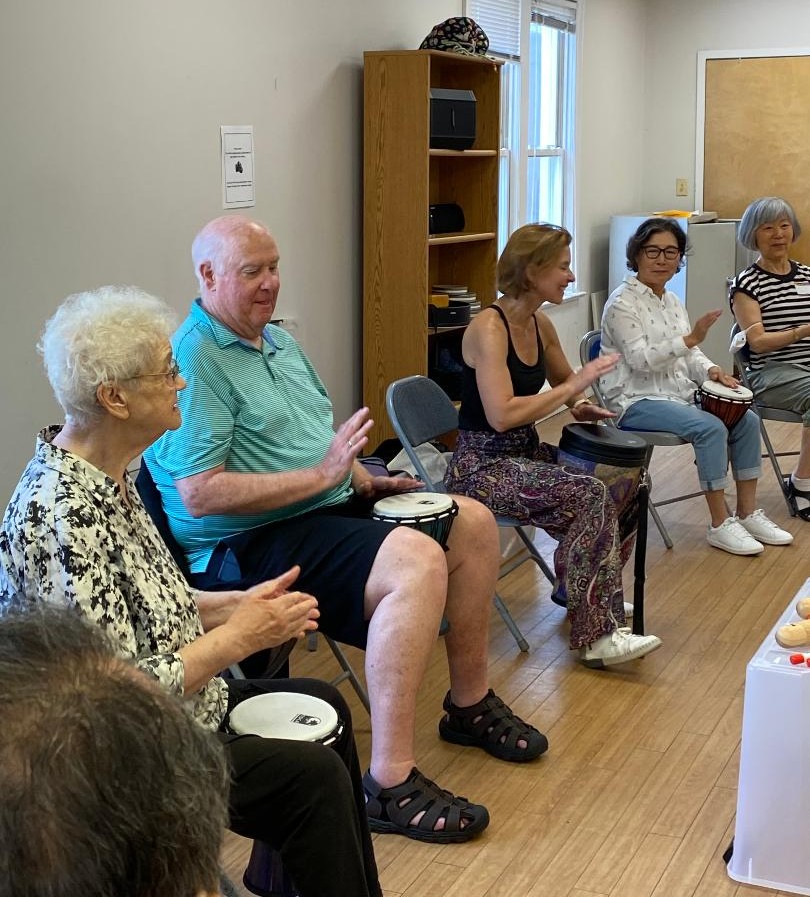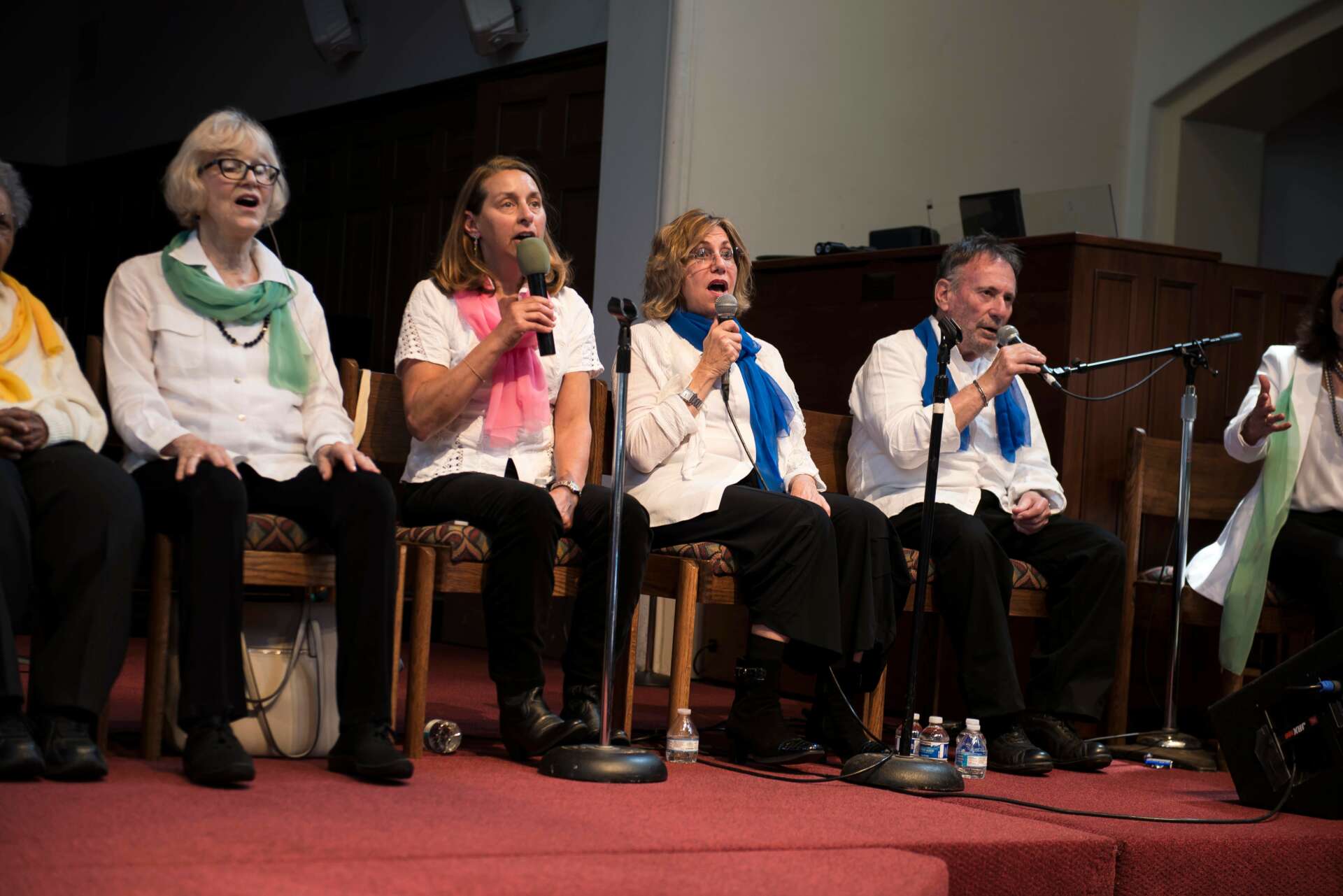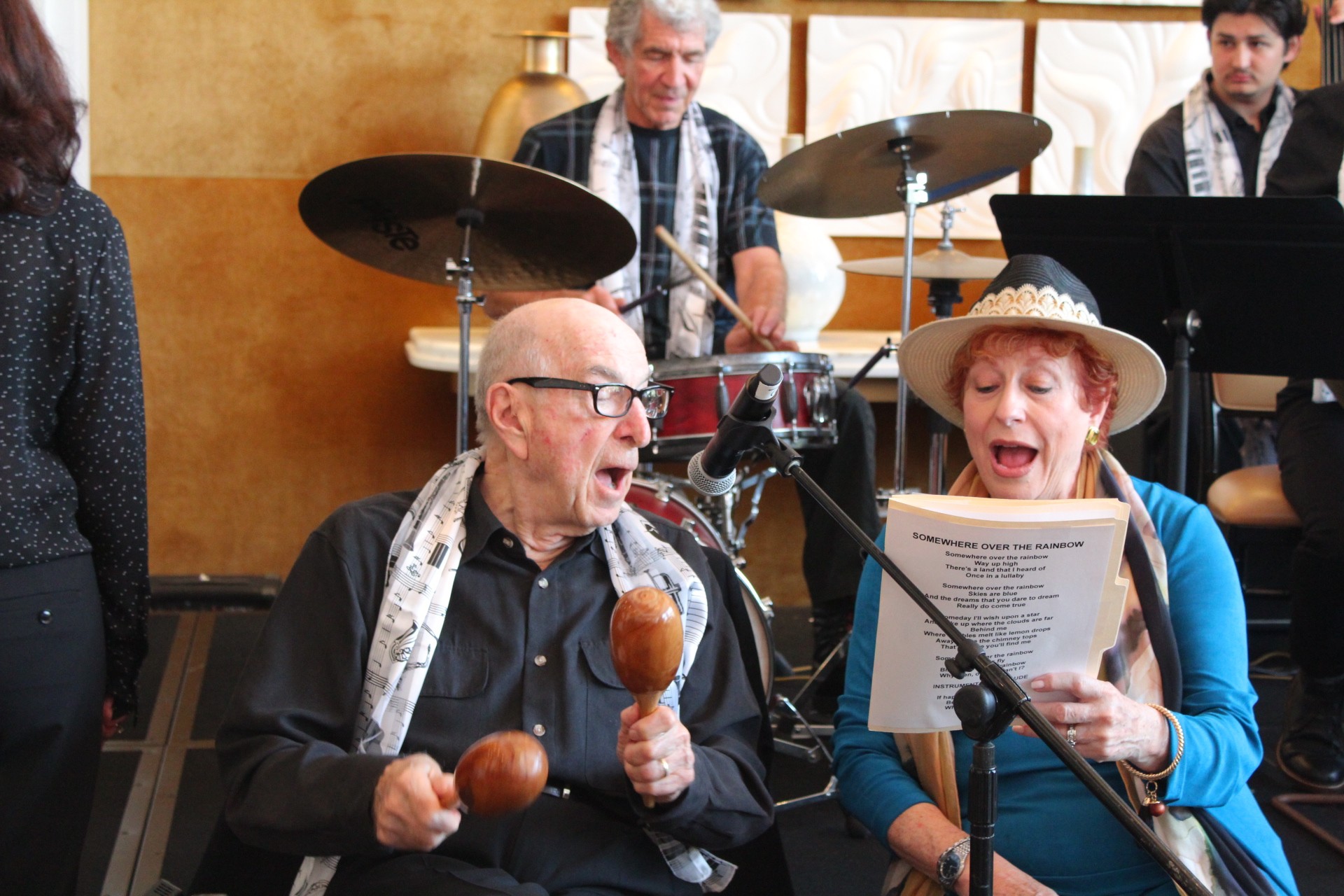Alright – so today we’ve got the honor of introducing you to Carol Rosenstein. We think you’ll enjoy our conversation, we’ve shared it below.
Alright, Carol thanks for taking the time to share your stories and insights with us today. We love heartwarming stories – do you have a heartwarming story from your career to share?
One day a new patient and caregiver showed up to one of our 5th Dementia band rehearsals. I greeted them and soon learned that Jon was a former fireman who played trombone in a big band. The band released him because he was missing cues which left him feeling downtrodden. So I told his caregiver to please bring his trombone to the next rehearsal. She told me that he didn’t play anymore. I encouraged her to bring it anyway which she did and now he’s integrated with the musicians and singers in the band. He performs onstage and on cue and even if he misses a note nothing matters more than that he’s engaged with his musical abilities again and joining in with the socialization and music making.

Awesome – so before we get into the rest of our questions, can you briefly introduce yourself to our readers.
I’m from South Africa. I came to the United States in 1962 to study a chiropractic form of natural medicine which evolved into psychology and mind body medicine. I educated people for 25 years about mind body medicine using clinical nutrition and the philosophy that the body seeks to heal itself given the right opportunity.
I was already engaged in helping patients with sports medicine injuries as the youngest graduate from the Los Angeles College of Chiropractic in 1966 before earning a Masters in Psychology, which led to my career in the field of mind-body medicine. My post-Masters degree in Clinical Nutrition aided in my holistic approach to medicine and allowed me to support patients who were unable to be healed by traditional methods. I continued to use my professional experience in natural prophylaxis by promoting music as a modality after my husband, Irwin, was diagnosed with Parkinson’s Disease in 2006 and later dementia.
I am a born teacher with a philosophy that supports my own growth, knowing that every day is an opportunity to learn, and the more challenging the lesson, the more gifts are unlocked to keep us keeping on. My life partner, Irwin Rosenstein, was given a diagnosis of Parkinson’s to include dementia towards the end of his 15-year journey. As his rock and life partner, I was able to support him and myself after coming upon the gift of music along the way. After 10 years of Parkinson’s medication, the side effects of the medicine incurred frank hallucinations and extreme agitation for Irwin. The miracle of music impacts our own pharmacies in our brains, pushing natural chemicals called neurotransmitters into our bloodstream and giving us a high of happiness and joy. In the moment of music making, our entire community of seniors and their caregivers experience the same revitalization, to include increased brain function, akin to a dose of medication.
The music storage cells in our brains outlive other cells. This allows our seniors in the midst of their decline to access music and music making without a problem. Neuro transmitters push happy chemicals which are released the moment the music maker is engaged in music making. This rush of “happy chemicals” works for those experiencing depression and mental illness too. When people are blue, music can change their mood.
Music brings joys and increases brain function. It’s about more than just being able to sing “Over the Rainbow.” Whatever we’re doing is corroborated by the scientific community with facts as to how they’re able to recall lyrics and play instruments with such precision even when they’re in the midst of cells dying which strips them of their identity. The music lifts them out of the ashes and brings light and meaning to their lives and helps them to create a new identity so they can endure their continuum while we wait for the real cure.

Let’s talk about resilience next – do you have a story you can share with us?
My resilience has been maintained and escalated due to the power of music affecting me as a caregiver to my beloved Irwin for 15 years and after his demise. My resilience has reigned supreme as I continue to nurse our global nonprofit and bring music to those suffering, their caregivers and families at large.

Training and knowledge matter of course, but beyond that what do you think matters most in terms of succeeding in your field?

Contact Info:
- Website: www.musicmendsminds.org
- Instagram: www.instagram.com/musicmendsmindsorg/
- Facebook: www.facebook.com/MusicMendsMinds
- Youtube: www.youtube.com/channel/UCVNsE42Emitla4Sw0wIV5Ew


